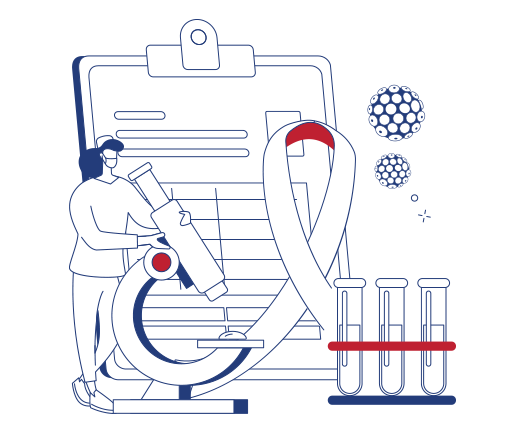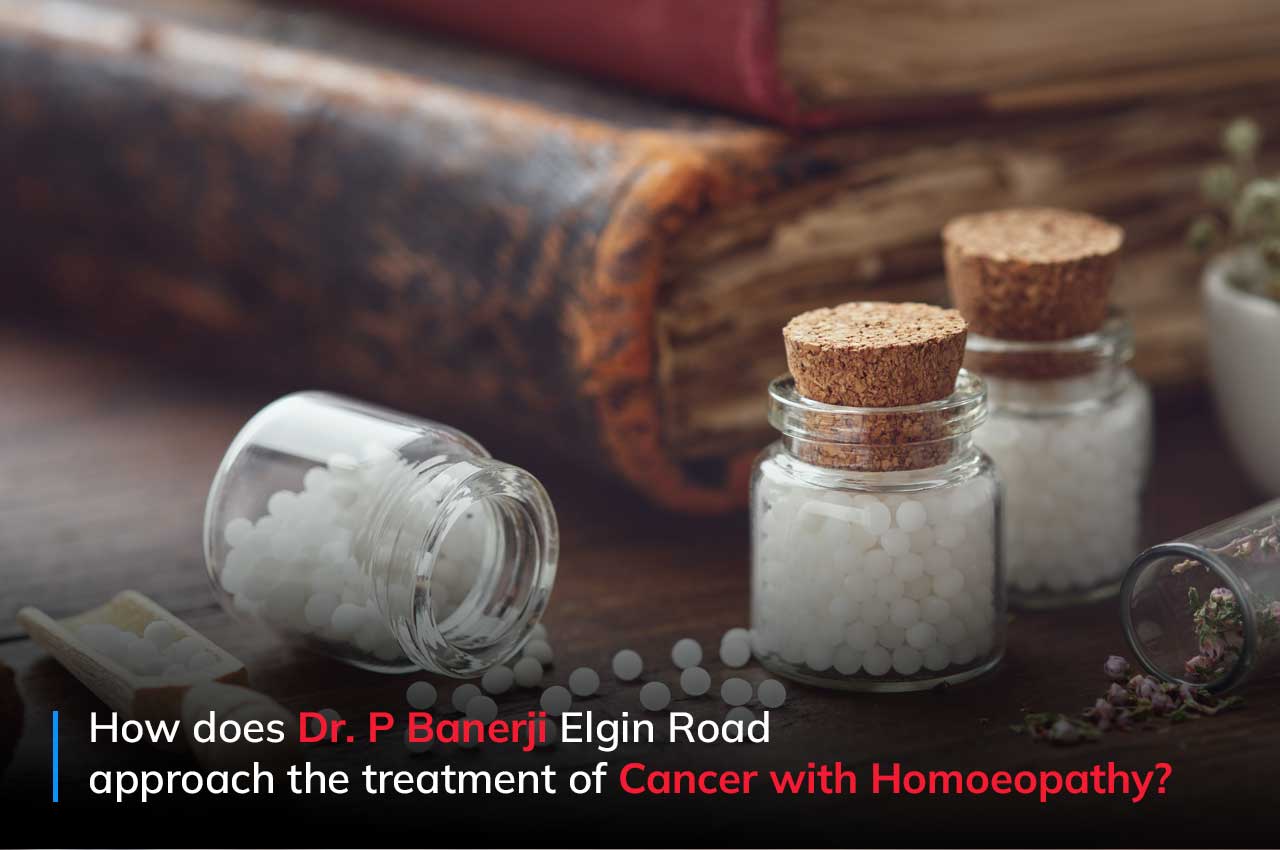


In recent years, the integration of homoeopathy in cancer treatment has garnered significant attention for its holistic and personalised approach. Among the pioneers in this field, Dr. P Banerji of Elgin Road stands out for his innovative methodologies and remarkable success stories. This blog explores how Dr. P Banerji and his team approach the treatment of cancer using homoeopathy, shedding light on their principles, methods, and outcomes.
Cancer is a complex condition marked by abnormal cell growth, typically treated with surgery, chemotherapy, and radiation. Homeopathy, based on the principle of “like cures like,” provides an alternative or complementary approach. It aims to alleviate cancer symptoms and enhance overall health by using highly diluted substances that, in larger doses, could produce similar symptoms to those of the disease. While not a replacement for conventional treatments, homoeopathy focuses on individualised care and aims to stimulate the body’s natural healing processes. Its use in cancer treatment remains contentious yet offers patients additional options for managing their condition.
Located in Elgin Road, Kolkata, Dr. P Banerji’s clinic is celebrated for its specialized cancer care. Founded by Dr. Prasanta Banerji and his son Dr. Pratip Banerji, the clinic integrates traditional homeopathic principles with advanced medical diagnostics. This unique blend allows them to create personalised treatment plans for every patient. By meticulously combining homoeopathic remedies with modern diagnostic tools like imaging and blood tests, they aim to address cancer comprehensively while enhancing the body’s natural healing processes. This approach distinguishes Dr. P Banerji’s clinic as a pioneering centre for holistic cancer treatment in India.
Dr. P Banerji’s approach to cancer treatment starts with a comprehensive assessment of the patient’s medical background, present symptoms, and diagnostic findings. Unlike conventional methods that directly target the disease, his homoeopathic approach prioritises stimulating the body’s natural healing abilities. By tailoring remedies to individual patient profiles, Dr. Banerji aims not only to alleviate symptoms but also to restore overall health and vitality. This holistic strategy seeks to address the underlying imbalances contributing to the disease, offering a personalised and integrative alternative in cancer care.
Dr. P Banerji’s methodology emphasises personalised treatment protocols, known as the Banerji Protocols, which are tailored to individual patients based on their cancer type, stage, and unique response to homoeopathic remedies. These protocols are structured post meticulous and long research procedures to include medicines proven to be effective in managing cancer symptoms and possibly influencing tumour regression. By customising treatments in this manner, Dr. P Banerji aims to optimise therapeutic outcomes, enhance patient comfort, and support the body’s natural healing processes, thereby offering a holistic approach to cancer care that complements conventional treatments.
Dr. P Banerji’s clinic combines Protocol principles with modern diagnostic tools like imaging scans, blood tests, and tumour markers. This integration allows for accurate monitoring of cancer progression and response to homoeopathic treatments. By leveraging these advanced diagnostics, the clinic ensures a thorough and individualistic approach to patient care. This hybrid model not only respects homoeopathy’s holistic philosophy but also enhances treatment efficacy through evidence-based monitoring, thereby offering patients a comprehensive and informed path towards managing their cancer with confidence and care.
Over the years, Dr. P Banerji and his team have gathered compelling evidence of improved quality of life, symptom reduction, and even tumour regression among their patients. These documented success stories highlight the potential of homoeopathy to complement conventional cancer treatments or provide an alternative for those preferring non-invasive options. While individual outcomes vary, these anecdotes underscore the significant impact of individualised homoeopathic protocols in enhancing patient well-being and managing cancer symptoms effectively. Such outcomes contribute to ongoing discussions about integrating holistic approaches into mainstream cancer care paradigms.
Homoeopathic cancer treatment, despite its growing popularity, encounters scepticism due to the absence of extensive clinical trials and empirical evidence validating its efficacy against cancer. Critics emphasise the need for rigorous scientific scrutiny to substantiate claims of tumour regression or prolonged survival. However, proponents advocate for its merits, highlighting benefits such as personalised treatment plans tailored to individual patients, minimal adverse effects compared to conventional therapies, and enhancements in overall quality of life. These aspects underscore the ongoing debate within the medical community regarding the role of homoeopathy in cancer care, emphasising the importance of balanced consideration and ongoing research.
In conclusion, Dr. P Banerji of Elgin Road has carved a niche in the realm of cancer treatment with homoeopathy, blending traditional wisdom with modern advancements. His dedication to refining treatment protocols and advocating for integrative healthcare has not only benefited patients but also sparked a broader conversation on holistic approaches to complex diseases. As Dr. Banerji continues to influence the field, his legacy serves as a beacon of hope and innovation for both patients and practitioners alike.